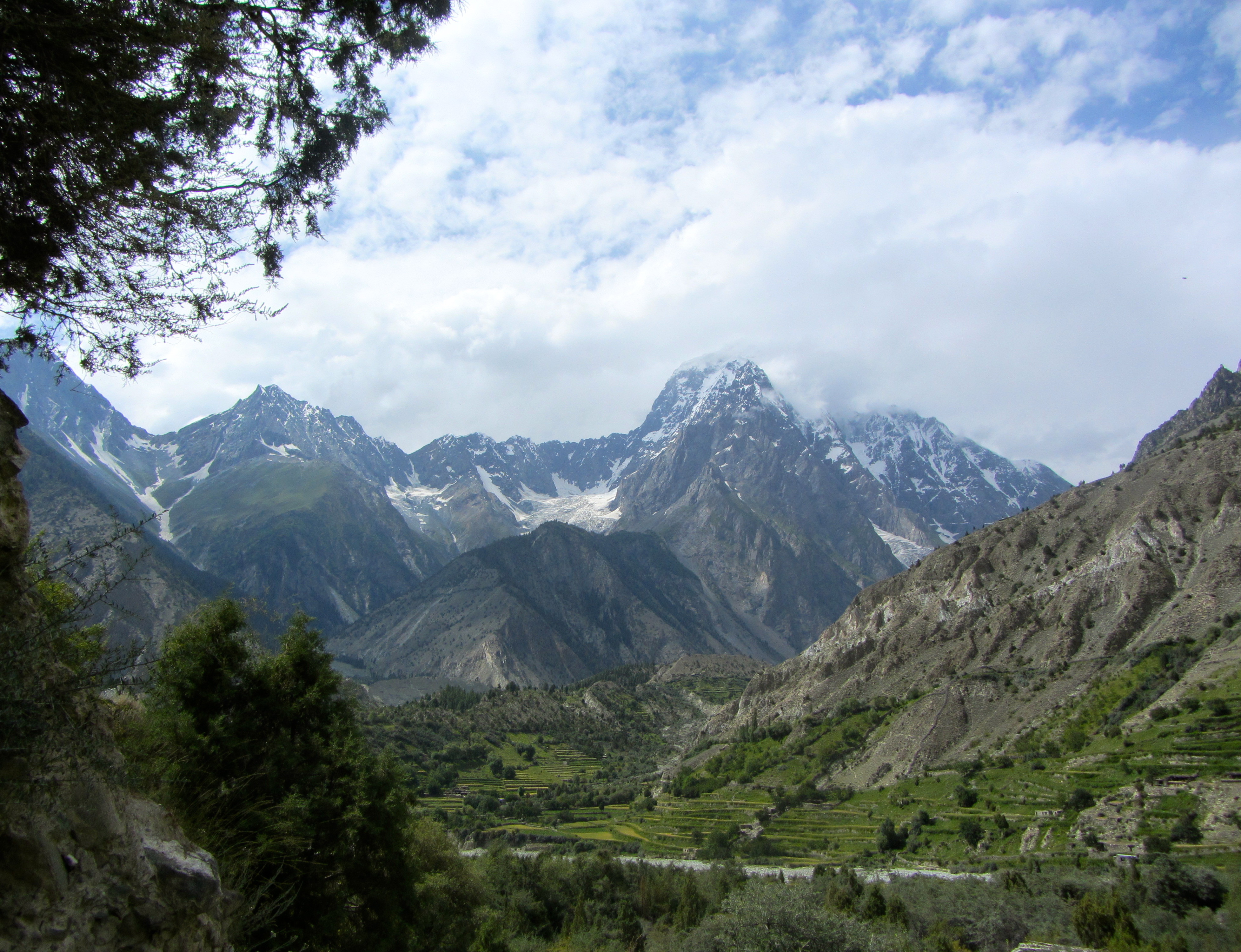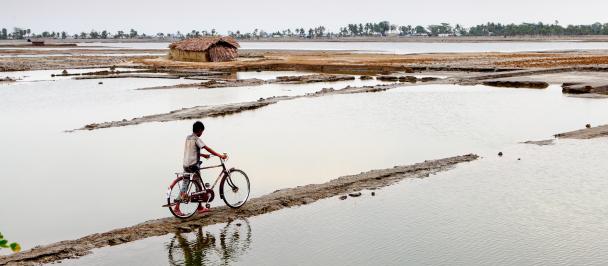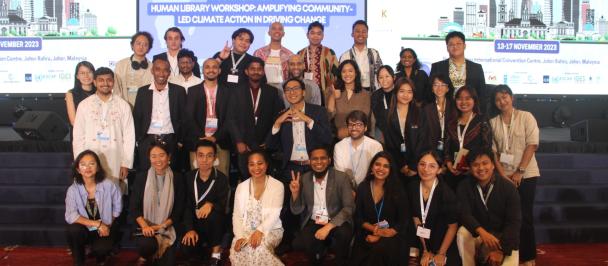Temperatures in the high Himalayas are rising faster than almost anywhere else on the globe except in the Arctic and Antarctic.
New York, 4 June 2021
Asia’s Hindu Kush-Himalayan mountain ranges will lose between one third and two thirds of its ice by 2100, as climate change causes water and food shortages for over two billion people in the downstream river basins of South and East Asia, according to a new UNDP policy paper.
First reported by the International Centre for Integrated Mountain Development (ICIMOD), UNDP gives this finding renewed policy urgency and impetus in the lead up to the UN Climate Change Conference (COP 26) in the UK in November 2021.
The Confronting Climate Change to Save the Third Pole policy paper warns that while the alarming melting of glaciers will affect agriculture, access to drinking water directly downstream, it is also closely connected to the same drivers that are worsening the region’s air quality and changing the monsoon patterns, affecting two billion people who live in the river basins of the region.
Temperatures in the high Himalayas are rising faster than almost anywhere else on the globe except in the Arctic and Antarctic. The paper builds its case on scientific findings that if current emission trends were to continue, the Hindu Kush-Himalayan mountain ranges – often considered the earth’s Third Pole – would lose two thirds of its ice by 2100.
The glaciers and snowmelt supply water, especially during the dry season, to the ten major river systems that originate in the Hindu Kush-Himalayan areas: the Amu Darya, Brahmaputra, Ganges, Indus, Irrawaddy, Mekong, Salween, Tarim, Yangtse and Yellow River.
Even with the increase in global temperature capped at 1.5 degrees Celsius above pre-industrial levels, glaciers in the ‘third pole’ will lose one third of their ice by 2100.
The report warns, however, that melting glaciers is merely the most visible symbol and symptom of a larger system imbalance caused by the same drivers: Burning fossil fuels and emitting greenhouse gases and short-lived climate pollutants. These do not just melt ice, but are also responsible for the severe air pollution faced by the region, and for changing monsoon patterns with potentially much larger consequences for food security and disaster frequency.
“We urge the countries in the region to step up their efforts to adapt to the changing calendar of droughts, floods and unpredictable monsoon seasons, and we call for increased regional cooperation to address fast-disappearing glaciers, with the well-being of two billion people at stake,” said Kanni Wignaraja, UN Assistant Secretary-General and UNDP’s Regional Director for Asia and the Pacific.
“The key issue here is that these changes in water availability and weather patterns are not matched by equally rapid infrastructure, policy and behavior changes that would help ensure the future provision of food, housing and livelihoods for two billion people,” Wignaraja said. “We need to step up both adaptation and mitigation efforts. We are on an alarming path which may result in deeper inequality and wider gap between the haves and have-nots who will bear the brunt of this climate emergency.”
The UNDP Asia-Pacific Policy Brief proposes a series of recommendations that would contribute to the urgently needed draw down of greenhouse gas emissions and reduction in emissions of short-lived climate pollutants:
· Reduce and transition out of fossil fuels and regulate a significant cut in the emissions of black carbon and other short-lived air pollutants.
· Shift billions of people to clean cooking and heating, through incentives and access to low cost technologies.
· Implement major changes in agricultural practices and massively reduce open fires, through awareness, regulation and heavy fines.
· Rethink urban spaces and promote sustainable walkable city centers.
The Policy Brief calls for improved environmental data, monitoring and research; strengthening the links between science and policy-making institutions; and, enhancing dedicated international cooperation to saving the Third Pole.
The “Confronting Climate Change to Save the Third Pole” is part of a series of Policy Briefs prepared by the UNDP Regional Bureau for Asia and the Pacific to shape and influence development policy priorities during the ‘Decade of Action’ leading up to the implementation of the 2030 Agenda for Sustainable Development. Please contact:
Swarnim Waglé for policy-related queries at swarnim.wagle@undp.org
Stanislav Saling for media-related queries at stanislav.saling@undp.org

 Locations
Locations


